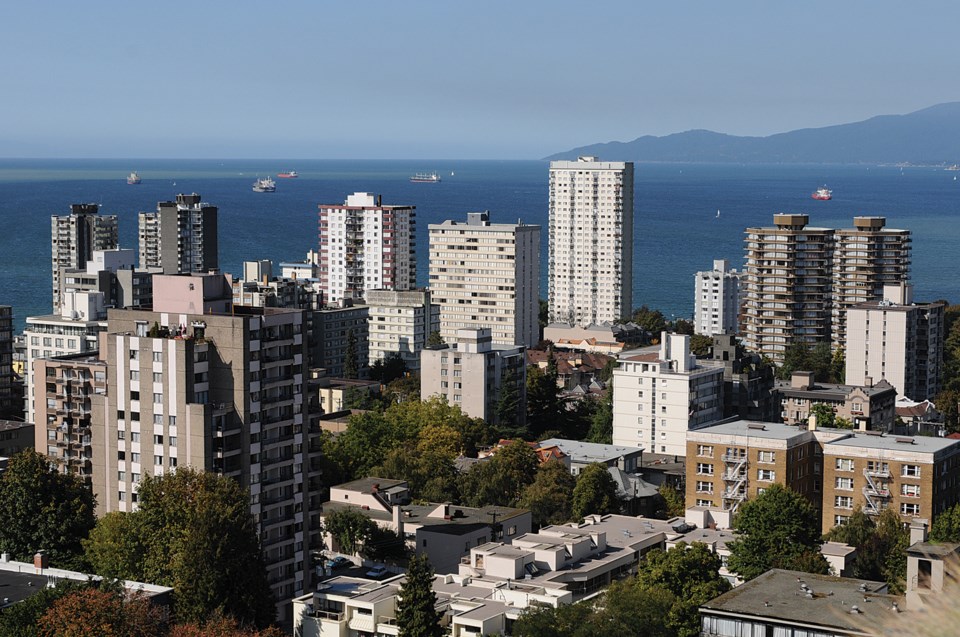The City of Vancouver is considering a host of new measures aimed at protecting affordable rental stock.
Its existing Rental Housing Stock Official Development Plan protects about 53,000 market-rental units in multi-family areas. Much of the stock is older and therefore units are often cheaper than what’s available in newer buildings.
Proposed updates to the plan, which are expected to go to public hearing June 5, would expand protections with an eye to reducing the loss of rental units during development.
Existing regulations call for one-to-one replacement of rental units for developments of six units or more in certain multi-family areas and comprehensive zoning districts of the city.
Protections being proposed would lower the threshold from six units to three, which would protect another 4,500 rental units in small buildings; cover more types of housing, including multiple conversion dwellings (a house divided into two or more units); and require replacement rental units to be suitable for Vancouver’s population, including families.
The city is also looking into ways it can encourage reinvestment in existing rental stock such as through municipal incentives, senior government programs or financing, strengthening provincial protections for renters and addressing evictions caused by renovations through the Residential Tenancy Act.
Building maintenance of aging rental buildings is another area the city wants to address. Most low-rise wood-frame rental buildings were built between 1950 and 1970 and may be in need of structural and energy efficient upgrades.
According to a city-commissioned report, the majority of landlords surveyed usually deal with problems with their buildings as they arise, but fewer than 25 per cent had a long-term capital plan to address significant repairs and energy needs in their buildings.
The city proposes a partnership with LandlordBC on a pilot project to support existing landlords with capital and energy planning.
David Hutniak, CEO of LandlordBC, said the organization is a collaborative partner with the city and it’s anxious to find solutions.
“This is the beginning of a much bigger conversation. This is complicated and expensive and we’re going to continue working with [the city],” he said. “Certainly, the pilot project could be effective. We’ll see where this ends up but there is still a lot of work to be done.”
With respect to older buildings that are nearing the end of their lives, Hutniak said there’s only so much that can be done to make them safe, secure and energy efficient.
“Then, the issue becomes where to do you get the money to do it. The business case to keep an existing three-storey walk-up intact and spend millions of dollars on building envelopes, mechanicals, roofs and windows is just not there. … the goal here is to look at this more deeply to find out really, at the end of the day, if this is what we want, then somebody has to help pay for it.”
The Vancouver Tenants Union told the Courier it would like to see more concrete proposals on how the city intends to protect existing renters.
“Lowering the threshold for requiring one-to-one replacement of rental units upon redevelopment is a good move, but without guarantees that these units will be re-rented to the same tenants, we are afraid that low-income tenants will continue to be displaced,” Liam McClure, one of its spokespeople, explained in an email.
“We hope that the City will pair these measures with improvements to the Tenant Relocation and Protection Policy, which should be expanded to include all types of rental housing, all buildings with more than two units, and should guarantee that tenants are offered their units back at the same rent. The City could prevent renovictions without the aid of the province by requiring that re-occupancy agreements with tenants be in place before permits for renovation or demolition are issued.”
The tenants union acknowledged maintenance in older buildings is an issue, but the organization argues the city shouldn’t expend resources assisting landlords to meet existing legal obligations to maintain their buildings, especially when the BC Non-Profit Housing Association released a report this week indicating 43 per cent of Vancouver renters pay more than 30 per cent of their income on rent.
“Rather than assisting landlords with creating capital plans for older buildings nearing the end of their market life, the City should be providing tenants with assistance in putting forward proposals to purchase their buildings to turn them into co-ops or other forms of permanent non-market housing,” McClure wrote.
noconnor@vancourier.com
@naoibh



